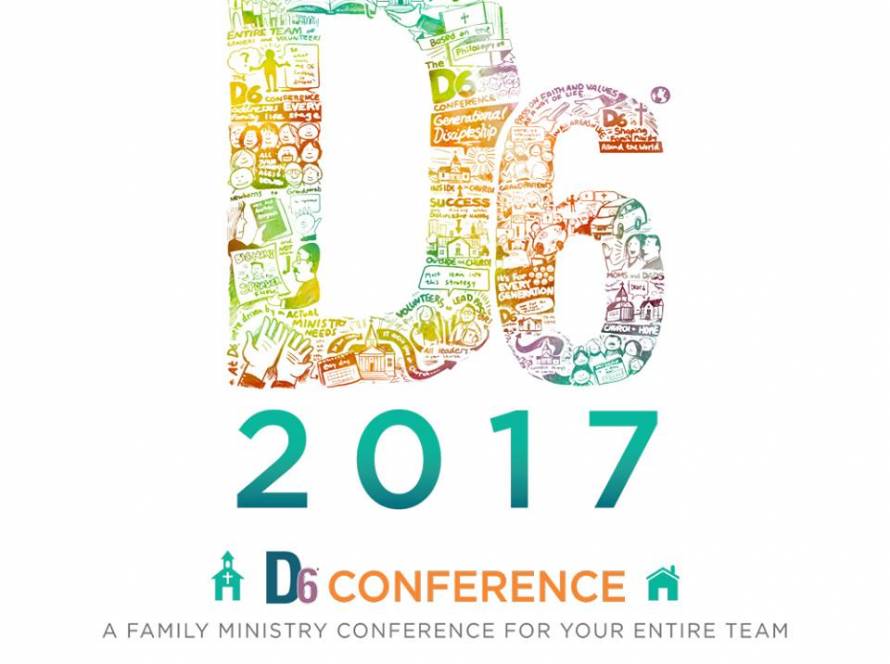It’s one of the most common mistakes I see churches make.
The “problem” is always the same – we don’t have enough young people, we want to attract young families, we need to bring in more kids and teens. And the solution is equally the same – make a bigger splash, add more bells and whistles, make Sunday School hour “the best hour of the week” and make your youth group the most fun, the most outrageous, trendiest spot on the block.
I recently had a conversation with a group of church members who are, well, aging. During the conversation, they began reminiscing about the “good old days”. They spoke with fondness and nostalgia about the days when their youth group was the biggest and their children’s ministry was booming. I listened quietly for a while but then I spoke up. “Where are they now?” I asked. “Oh, well, they grew up!” was the reply. “But where are they?” I asked. “Did they all move away? Are all of those kids and teens no longer in the area?” It didn’t take long before their faces fell. Because the answer was that while a few had moved away, most had just moved on. Moved on from church. Moved on from the community. Moved on from their faith.
The mistake I see churches making is simple: They try to compete. Not just with each other but with the rest of society. They try to be cool, to be fun, to be the place to be and try to attract people to their programs and activities. But here’s the inconvenient truth – No matter how cool or fun we think we are, we can’t compete with places and programs who sole purpose is FUN. They are better funded, better resourced, and better equipped to be fun. They have entire budgets dedicated to advertising and marketing.
There’s no competition. And also… there is NO competition.
The fact that we engage as though there is a competition is a problem. Our purpose, our goal, and our existence is innately and completely different than those who exist to entertain and amuse. We are called to make disciples. The church is meant to be the body of Christ. Our community is called to love God and love others. That is our goal and our purpose.
So even if we try to compete and we do grow our programs for a little while and make a big splash in a little pond, if we have not grown disciples and if we have not put in place the relationships necessary for lifelong faith formation, we have not won. We’ve lost.

And we have lost. Self-identified Christians make up 63% of U.S. population in 2021, down from 75% a decade ago (Source). We know all the numbers; we hear them all the time.
But what about those who stay? Is it because of our bells-and-whistles? Is it because we “won” the competition?
On the contrary, it is because of the places and ways where we were true to who we are and what we are called to be. Research shows us that young people who stay in church do so for things like genuine relationships not just with peers but with the larger church community (older people!), deep theology not surface level teaching and fun games, service and purpose with mission as the goal, honest discussions and a sense of belonging to a family (Source).
I know that it sounds like I am “against” programs. I’m not. Programs can be useful tools to help us accomplish a task, a goal. I know it sounds like I’m “against” fun. I’m not. Having fun and experiencing good times together is part of how we are created to be in community; it’s just not our reason for community. When our tools become our goals, we can confuse why we do what we do and end up reaching for (and missing) outcomes that aren’t even within the scope of our calling.
What if instead of focusing on being the biggest, the best, and the most fun so we can grow our numbers and make our big splash, we began to run everything through the grid of “What makes a lifelong disciple?” and refocus on those things that bring us together rather than those designed to keep us apart?
And what is keeping us apart? Well, I think, unintentionally we are by acting as though our tools are our goals. But we don’t have to do that. We just need to reestablish our true goals, revisit our metrics, and refocus our energy on growing what matters – lifelong disciples in community that loves God and loves others. It’s not a competitive approach but it is a winning one.
Good Giving 2024
This November, I’m excited to invite you to participate in ReFocus Ministry’s Good Giving Campaign. As we approach Giving Tuesday on December 3, we’re offering you a special opportunity to join our Patreon community and support the mission of connecting generations in lifelong discipleship.
When you sign up or upgrade your Patreon membership by December 3, you’ll receive:

- Exclusive access to an Ask Me Anything (AMA) event with me, Christina Embree, and some of our amazing ReFocus Reflections interviewees.
- A gift certificate for a free quarter (3 months) of Patreon interviews to give to your pastor or children’s pastor, so they can access all our resources and interviews.
- First dibs on webinars, roundtables, resources, and more!
Help us reach our goal of 50 new Patreon subscribers by supporting this ministry that connects generations in faith and discipleship. We would love to have you join us!
Sign up now at https://www.patreon.com/c/ReFocusMinistry
Thank you for your support and for believing in the power of generational discipleship!
It’s time to start connecting generations. We all know it!

But, how to do it? And how to do it in a way that is sustainable in a supportive environment? Let’s go deeper – deeper in our understanding of generational discipleship, lifelong faith formation, and intentional discipling community.
ReFocus Ministry Cohorts provide ministry leaders with the opportunity to expand their leadership skills in a twelve-week shared learning experience. Facilitated by Christina, a cohort group of 4-6 individuals from multiple denominational backgrounds meet weekly to explore and apply the principles of leadership in generational discipleship, intergenerational ministry, and church culture transition.
Learn More: https://refocusministry.org/speaking-coaching/
(ReFocus Ministry Cohort Tab)
Submit Interest Form: https://forms.gle/WKf2Zd97kv95vovr7
Scholarship inquiries: Email christina@refocusministry.org
About the Founder of ReFocus Ministry
Christina Embree is the founder and director of ReFocus Ministry. She holds a masters in ministry focused on Children, Youth, and Family Ministry and a doctorate in spiritual formation with a focus on age segregation and intergenerational ministry.
In addition to coaching churches of multiple denominations and traditions all around the globe, Christina serves as the Minister of Generational Discipleship for the Great Lakes Conference of the Brethren in Christ and as Next Gen pastor at Open Door Church in Lexington, Kentucky.
She is widely recognized as a speaker and author in the areas of generational discipleship, intergenerational ministry, and family ministry. As the mother of three children, she is familiar with the challenges of faith at home and pastoral ministry. She along with her husband Luke share a love for the church, their community, and the global work of peace and restoration through Jesus.
Interested in having Christina visit your church, speak at your conference, or coach your team?
Christina speaks on a wide range of topics related to children, youth, and family ministry with a unique focus on connecting generations for discipleship within your church. Her personalized approach allows you to pinpoint the needs of your community and gain the insight that you are looking for. Whether this is a volunteer team training and pastoral staff meeting or a ministerial conference, her experience and knowledge will help you determine the next step forward in creating lifelong disciples.



